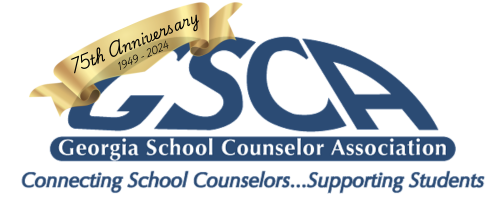Equity and Social Justice Resources
GSCA is committed to supporting school counselors as they fulfill their ethical obligation to be social justice advocates and change agents for ALL students. If you have a resource that you would like to share or believe would have broad appeal to aid Georgia school counselors, please email info@gaschoolcounselor.org to suggest additional content for the document or this page.
Read the GSCA Position Statement on Diversity, Equity and Inclusion
Download the Resource Document - Equity and Social Justice Resources for School Counselor
Additional Resources:
Blog Series on Talking to Kids about Race and Ethnicity
Affirming Black Lives without Inducing Trauma
There is no Apolitical Classroom: Resources for Teaching in these Times
10 Children's Books About Police Brutality – Feminist Books for Kids
Why Conversations About Racism Belong in the Classroom
Becoming Upended: Teaching and Learning about Race and Racism with Young Children and Their Families
Talking about Racism and Bias: Resources for parents and caregivers
Education Week: Resources for Discussing Police Violence, Race, and Racism with Students
Combat Racism: Classroom Ideas
Teachers Must Hold Themselves Accountable for Dismantling Racial Oppression
Understanding Race and Privilege
Comprehensive List of 2020 Curriculum Resources
Healing our community - educational forum
On Friday, June 19th, GSCA hosted a virtual educational forum to talk about racism, privilege, and racial justice. As school counselors, we want to be able to explore and strategize ways to help our schools, community, and society. Links to the recordings of all sessions and any handouts presented are below.
BAMN: Counselors Organizing for Racial and Economic Freedom (By Any Means Necessary)
Presenters: John Nwosu and Jennifer Susko
Our profession and world continue to move further toward acknowledging the need and demand for social and economic justice especially amid our concurrent health, economic, and social crises. Organizing and empowering people to create positive change for Black people and people of color in all communities is of extreme importance. In this session, participants will learn how to translate ethical standards into daily practice, apply a root cause analysis process to solve complicated and complex problems, identify roles they can play in anti-racism work, and identify at least two next steps toward anti-racism they can take immediately.
PDF Presentation
Video Presentation
Using Student Focused Literature for Healing Centered Engagement
Presenters: Dr. Lindsay Wyczalkowski and Ms. Teruko Doshabi Taylor
Literature can be a powerful tool in either reinforcing or dismantling systemic oppression of traditionally marginalized students. In this session, participants will critically self-reflect on their own educational practices and learn how to use literature for healing centered engagement of youth. Specific practices will be offered to support educators in selecting text that honors the intersectionality of identity and culture, as well as strategies for holding space for students to engage with complex socio-political issues.
PDF Presentation
Video Presentation
Why Does it Hurt So Bad?: How to be an Ear and an Advocate for the Voiceless
Presenter: Dr. Crystal Cooper
This workshop is an intensive workshop designed to educate, challenge, and empower people to reframe empathy and knowledge related to race, bias, and conceptual understanding of our nation's current events regarding recent injustices and inequities. The workshop is based on the premise that racism has been systematically erected and that it can be “undone” if people understand where it comes from, how it functions, and why it is perpetuated. Participants will engage in virtual experiences where they will cultivate the beginnings of a cultural "story," and have time to discuss their thoughts with others while walking away with ways to indulge in the conversation with others professionally, and empathetically all with a growth mindset.
PDF Presentation
Video Presentation
Talking to Children and Teens About Race
Presenter: Dr. Bobby Gueh
The conversation of systemic racism can be an unnerving one, especially with children and teens. It is critical to first examine one’s own racial identity development, and the historical perspective of racism, before engaging in “The Conversation”. This session will provide a historical underpinning of institutional racism, strategies for examining racial identity development, and practical strategies you can use to broach “The Conversation” with children and teens in our schools and communities.
PDF Presentation
Video Presentation
Student Voice Video “Seeing Color”
Musical Journey to Racial Justice
Presenter: Mr. Eric Dozier
Cultural activist and musician Eric Dozier will take participants on a journey as he shines a light at the crossroads of music and American race relations by performing songs and discussing key musical figures and themes from different eras in history. By the end, participants will understand what it means to be an active and creative advocate of diversity and equity imbued with a renewed sense of mission and commitment to being the change they wish to see and how to use music as a means of connecting with the school community on the topic of racial justice.
Interrupting Racism: Equity and Social Justice in School Counseling
Presenters: Rebecca Atkins and Alicia Oglesby
Interrupting Racism will provide participants with a brief overview of racial equity in schools and practical ideas that a school-level practitioner can put into action. The presenters will walk attendees through the current state of the achievement gap and racial equity in schools and will explore issues around the intention, action, white privilege, and implicit bias. Stories from school counselors about incorporating stakeholders into the work of racial equity will be shared with participants.
